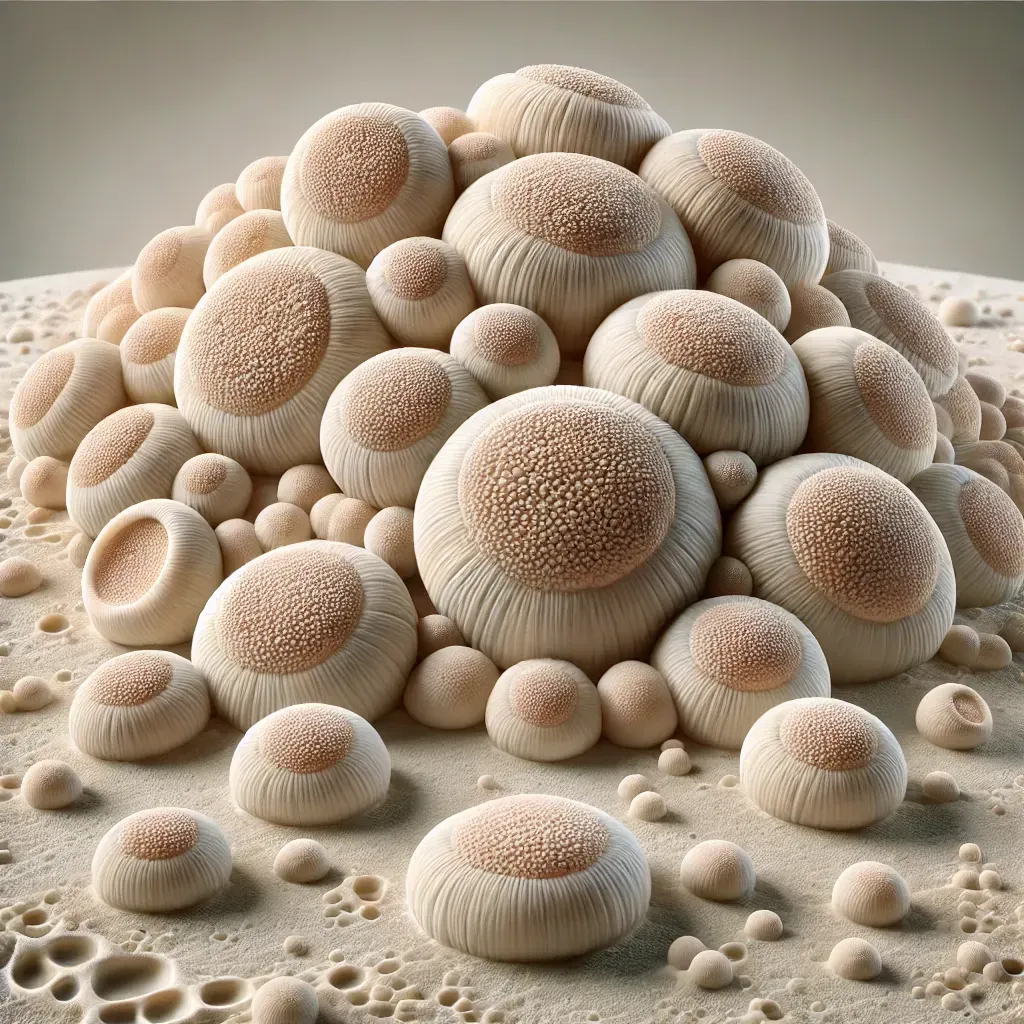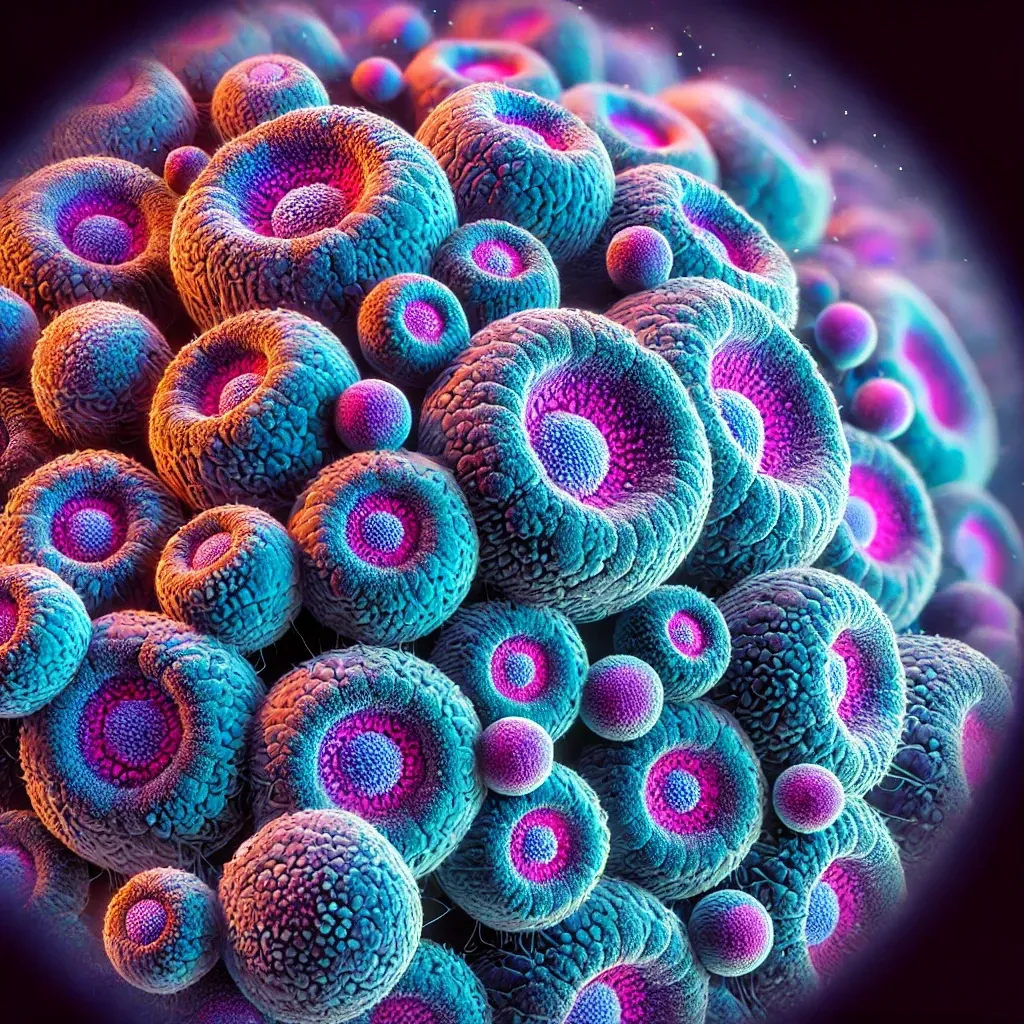Your Mast Cell Activation Syndrome Questions Answered Functionally
What is a Mast Cell?
A mast cell is an immune cell that helps with triggering immune reactions such as the inflammatory response and allergic reactions. It does this by creating stores of chemicals known as granules, which can then be released into nearby tissues if the mast cell is stimulated (for example, in the presence of an allergen).
Macrophage vs Mast Cell
Sometimes immune cells can get confused. Mast cells are NOT Macrophages, and serve a
specific function in mediating tissue cell immune response through chemical release that macrophages do not share. Macrophages are more oriented toward foreign body detection and antigen presentation.
What is Mast Cell Activation Syndrome?
Mast cell activation syndrome (or MCAS) is when Mast cells (as described above) trigger an immune response at inappropriate times (without it being beneficial). In this case, the chemical granules are released by the mast cells affecting the surrounding tissues, causing physiological effects that are sudden, serious, and unnecessary.
MCAD vs MCAS vs Systemic Mastocytosis
MCAD or (Systemic) Mast Cell Activation Disease, is an umbrella term for Mast Cell diseases and disorders. This umbrellaed group is characterized by two features. Firstly, the atypical release of chemical granules, triggering an immune response. Secondly, the atypical grouping or spread of persistent dysfunctional Mast Cells.
One such disease under this umbrella is Mast Cell Activation Syndrome (MCAS), which takes on the first mode of effect (i.e. it involves the stimulation of cells to release chemical triggers).
Another is Systemic Mastocytosis. Systemic Mastocytosis involves the atypical proliferation of persistent mast cells. This tends to be more severe than MCAS as the condition tends to become progressively worse over time.
Can you have both MCAS and Mastocytosis?
Yes. And the conditions will almost certainly compound each other’s negative effects.
Symptoms of MCAS:
MCAS results in anaphylaxis, and symptoms are consistent with it as a general condition.
That means:
- Cardiovascular issues such as low blood pressure, feeling faint, or a racing heartbeat.
- Classic allergy skin symptoms such as itchy nose (or skin in general), hives and red swelling.
- Gastrointestinal issues ranging from bloating to diarrhea
- Breathing issues such as shortness of breath, mucus blockages and wheezing.
- Brain fog, dizziness, and minorly impaired cognition.
*This list is non-exhaustive.
These may not sound like end-of-the-world issues, but getting them spontaneously can be extremely disruptive to a normal healthy life. Living with MCAS can be very frustrating and can affect confidence and self-esteem. Furthermore, in combination with other health issues such as asthma or heart health problems, MCAS can raise the risk of serious adverse events.
In serious cases, these symptoms can manifest in the extreme and are life-threatening.
Mast Cell Activation Syndrome Neurological Symptoms
MCAS may have further symptoms in the neurological department which are still being explored. Mast Cell Activation Disease (MCAD), of which MCAS is a specific form, has been associated with a wide array of neurological conditions. These include:
- Pain Hypersensitivity
- Sleep Disorders
- Parkinsonism
- And many more
Furthermore, due to the dense concentration of mast cells in the region of the brain closest to the pituitary gland and the hypothalamus, the mast cells are expected to have a significant effect on the hormonal systems and the HPA (Hypothalamic-Pituitary-Adrenal axis). The mast cells in the brain respond to stress signals from the hypothalamus and induce a variety of effects on the central nervous system.
What are some common MCAS Triggers?
MCAS symptoms can be brought on by a wide array of triggers, some of the common ones include:
Smells and Odours (this can vary depending on the individual).- Certain foods (again this can vary depending on the individual).
- Mold
- Cleaning Chemicals
- Vibrations
- Friction with the skin
- Venoms (such as a bee sting)
- Dust
*This list is non-exhaustive.
If you have MCAS you might experience some of these, all of these or even none of these (but other triggers) at varying levels of potency. MCAS is defined by the hyperactivation of the cells, not by the triggers that it reacts to in any given person.
Can Mast Cell Activation Syndrome Cause Cancer
NO. Mast cell activation syndrome has not been shown to be a cancer risk. HOWEVER, other mast cell activation diseases, such as systemic mastocytosis, CAN become cancerous.
Can you Die from MCAS
YES. Mast cell activation syndrome commonly causes anaphylaxis, which, if left untreated, can cause death. Anaphylaxis deaths are very uncommon, with only a
couple hundred deaths per year. What’s more, is that only a percentage of these will be MCAS-related. Nevertheless, do not underestimate the threat of anaphylaxis and always carry a rescue aid (such as an EpiPen).
Other symptoms of MCAS could lead to death as well; however, these would typically be less direct and, therefore, are unmeasurable. Think dizziness. If you became dizzy, fell, and died, people may not be able to determine the cause. This is, of course, highly unlikely.
Is MCAS a Disability
MCAS is a disability. MCAS can cause an individual to be unable to perform certain tasks, or in certain environments. It’s easy to imagine how becoming short of breath and faint can cause a disruption to daily activity. This qualifies it by such definitions as that of
Merriam-Webster.
Whether it is recognized as such in any given jurisdiction for benefit purposes or is considered a severe enough disability to merit this kind of aid is a matter of governance. In the United States,
MCAS can be sufficient for disability claims based on severity.
Mast Cells and Asthma
Mast Cells play a key role in asthma, which is exacerbated by the presence of MCADs such as MCAS or mastocytosis. Mast cells are especially notable in allergic asthma (a common subtype of asthma that triggers in relation to specific allergens) and release chemicals that directly result in airway constriction. The severity of asthma can be related to mast cell density and the location of mast cell origin points in the lung.
What does day-to-day life look like for an MCAS Sufferer?
The day-to-day experience of an MCAS sufferer will be highly bio-individualised. That is to say, it will depend on
1. The symptoms they typically have.
2. The severity of their condition.
3. Their management and treatment methodologies of the condition.
4. The triggers they may be exposed to on a given day.
A sufferer’s experience can often be characterized by a compulsive situational awareness with the intent of evading triggers and subsequently reducing their symptoms. This is a highly stressful but ultimately necessary behavior for someone with the condition, in a similar sense to how one might treat a typical severe allergy.
MCAS sufferers should ALWAYS carry an EpiPen (Self-injectable Epinephrine), which can be life-saving in case of sudden anaphylaxis.
A typical person with MCAS, despite these challenges, will be able to engage in normal activities, especially with assistive measures (such as well-cleaned work space).
Symptoms can be expected on a daily basis should the sufferer not maintain good awareness of potential triggers, and even then, it is still very possible that symptoms will arise. This is especially challenging when triggers are unavoidable (e.g. pollen counts).
Helpful Behaviors when Living with MCAS
Listing trigger events can help you build a picture of what you typically react to. You can then use this to guide future behavior, such as purchasing choices.
Indeed, maintaining a clean house can be very helpful as dust particles are a very common MCAS trigger. Use natural cleaning products to avoid potential exacerbation of symptoms. Check out www.ewg.org for an easy guide to clean products.
Use a mask and gloves when cleaning to minimize exposure to whatever chemicals you do use.
Always carry a rescue aid such as an EpiPen.
Avoid NSAIDs where possible (that’s non-steroidal anti-inflammatories such as ibuprofen).
Watch what you eat (more on that when I discuss what functional medicine does in response to MCAS).
Keep fit in other areas of life.
Exercise and MCAS
Evidence suggests that exercise advice applicable to most people is not transferable to MCAS sufferers. MCAS symptoms can actually be triggered, and conditions worsened by intensive exercise.
With that said, it’s still important to be keeping healthy, and keeping healthy involves exercise.
It’s advisable to stay active with gentle exercises such as yoga or pilates.
Swimming can be especially beneficial for MCAS sufferers as it is good for strengthening the lungs but can still be gentle.
Weight lifting is also a good option, as moderate loadbearing can help to offset the risk of osteoporosis faced by someone with MCAS.
When exercising, it is important to be mindful of the possibility of a sudden trigger and ensure rescue aids are near at hand.
Who treats MCAS?
Western Medicine provides treatment for MCAS, as do alternative functional therapists like me.
Diagnosis of MCAS can be challenging due to overlap with other conditions (including other MCADs), and treatment can also be difficult as the episodes of MCAS symptoms are idiopathic (meaning we don’t know for sure how they are triggered, or it’s exceedingly difficult to determine).
Is there a cure for Mast Cell Activation Syndrome (MCAS)?
It’s controversial. Western Medicine would say “no”. Many alternative medicinal practices would say, “Yes, in many circumstances, but not always”.
What is the Western Approach to MCAS?
The Western approach prioritizes patient relief, which is certainly important with a condition as impactful as MCAS.
This means rapid diagnosis and treatment with prescription medication (generally blockers for the chemicals released by the mast cells).
The most effective way for Western medicine to diagnose the condition is to do a blood test looking for clues in tryptase, histamine, and prostaglandin levels. They will also look for symptoms characteristic of allergic reactions and will test you with antihistamines and blockers for the mediator chemicals released by mast cells to see how you react.
One such medicine might be loratadine, a common antihistamine thought to be a mast cell stabilizer. You can purchase it over the counter in most jurisdictions, and so trying it is a diagnostic test you can perform yourself should you wish. It is, of course, wise to consult a physician first if you have any cause for concern with taking a new medication.
On the cutting edge of Western medicine is a treatment called Xolair (Omalizumab). It is an injectable medication that has shown
significant promise in management of MCAS symptoms. Xolair for MCAS is becoming more and more common and has been recommended as a monthly prescription for sufferers. This would, of course, be indefinite, but pending a pronounced change in the causative factors for sufferers, treatment with Xolair could be life-changing. That said, Xolair is not without its own risks, with the manufacturer noting potential
side-effects such as cancer, heart conditions, parasitic infections, and other unpleasantness. It may be a worthwhile trade for some, however, as living with MCAS is not easy.
Nevertheless, once a diagnosis is made,
Western medicine declares you incurable and will continue to prescribe medication to you for symptomatic relief for the rest of your life. Indeed, genetics does seem to play a role in MCAS, but the jury is out on whether this is predispositionary or entirely heritable.
What is the Functional Medicine Approach to MACS?
Less precise in diagnosis (not that there was much precision on offer to begin with), but more hopeful in prospects; functional medicine is fine with you taking symptomatic cures, provided they are not harmful, but it itself focuses on improving factors that could cause disorderly mast cell behavior.
This comes as part of a broader approach to living a healthy life and treating the body as one big interconnected system. That being the case, diagnosis is not *such* a priority, but getting you to a place where MACS is a thing of the past is.
Some things that functional medicine attempts to help you rectify (using highly personalized diet and lifestyle routines) are:
- Hormonal Cascade and Estrogen Levels
- Gut Health and Dysbiosis
- Autoimmune conditions
- Mental Stress and Stressor Management
All of these factors will play a role in MCAS, and functional medicine will help you bring balance to them. Even in the instance that you are genetically predisposed to Mast Cell Activation Syndrome, the reduction in symptom expression you stand to experience from the resolution of dysfunctions can improve your quality of life markedly.
Is it, in that case, possible to cure MCAS with functional medicine practice? Since there aren’t peer-reviewed studies proving it, the jury is still out, but I am a proponent of the idea that it is. There is still a lot we need to learn about gene expression, and we know that genes are turned on and off in cells, which then multiply to replace old cells. Is there scope for this mechanism, or indeed some other, to result in a full cure of MCAS? We don’t know, but if it cures your symptoms while you try and find out, then I’d say it’s not a bad bet.
If you have MCAS, you should strongly consider talking to a functional medicine practitioner. Given that Western medicine brands the condition as incurable, there is very little to lose from booking a
free discovery session to feel out your options.
In Conclusion / TL;DR
To sum up, MCAS is a hyperactivity of immune response cells.
It’s a serious condition not to be confused with its close counterpart, mastocytosis, which is even more serious.
It can be brought on by a number of common triggers on a daily basis and the symptoms are wide-ranging.
It is non-cancerous (unlike some other similar conditions) but is lethal if not well managed.
Daily life can be difficult for the MCAS sufferer, but there are behaviors that can help.
Western medicine has some promising treatments for MCAS symptoms but the consensus is that MCAS is permanent.
Functional Medicine also has promising treatments, but these are more targeted at pathology in order to better manage activation.
Don't Miss Out!

Heidi Toy Functional Medicine Blog

























































































